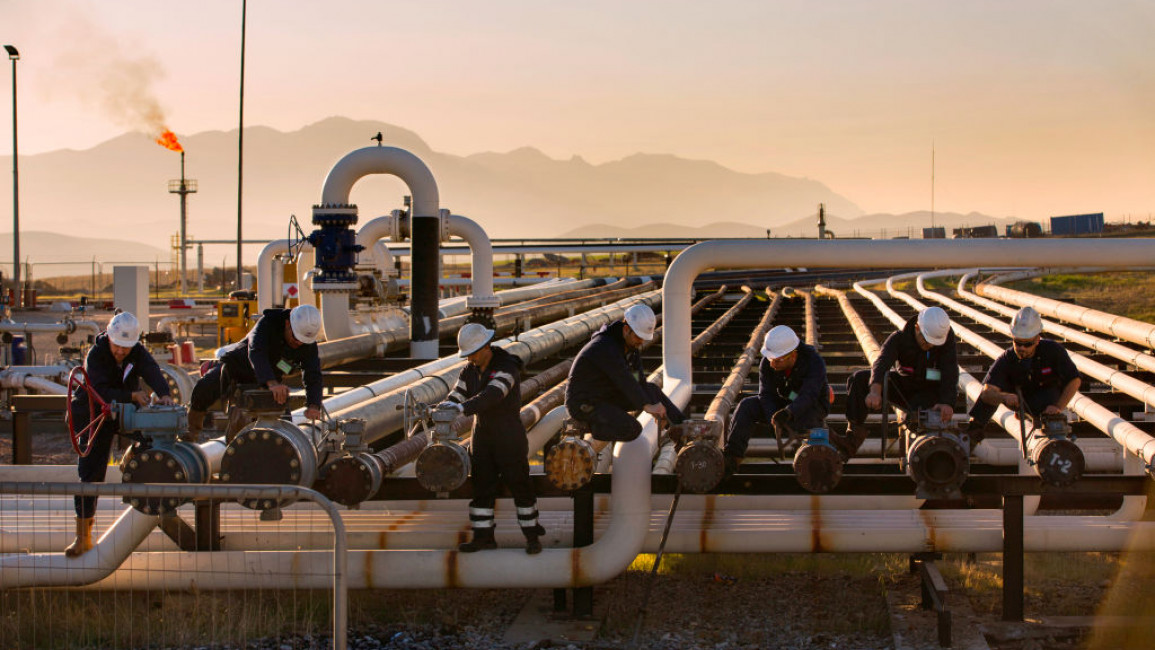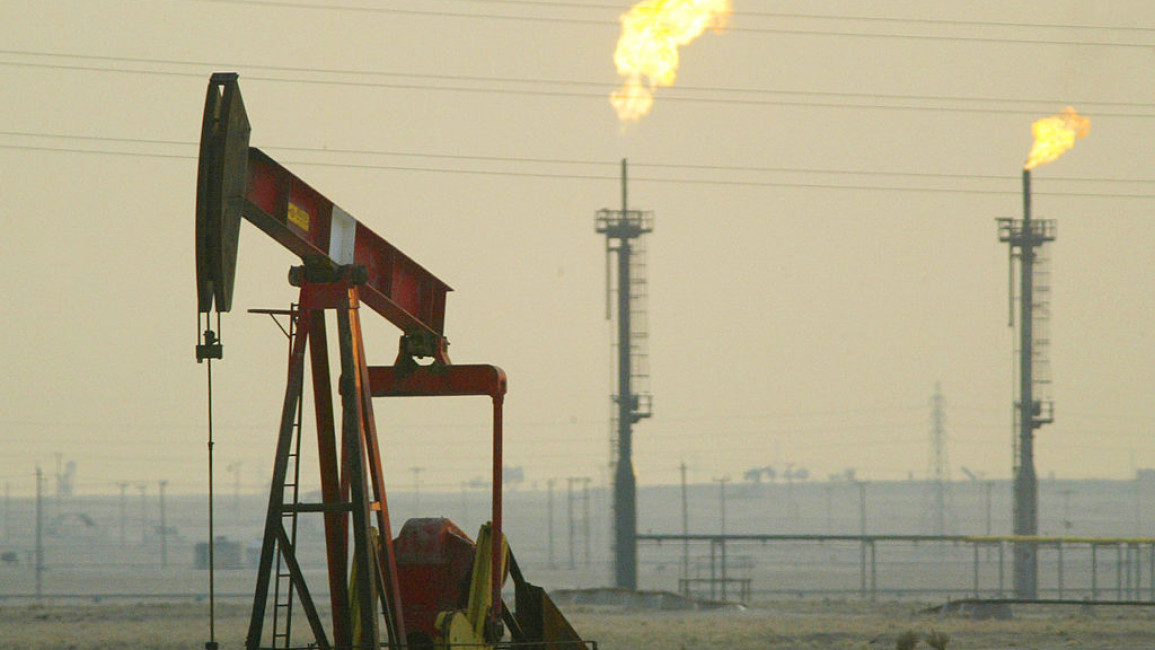
'Route of Development': Is Iraq's $17 billion road and rail mega-project feasible?

Iraq last month presented an ambitious plan for a $17 billion project to turn itself into a regional transportation hub by developing its road and rail infrastructure, linking Europe with the Middle East.
The 1,200-kilometre (745-mile) project known as the 'Route of Development', stretches from the northern border with Turkey to the Gulf in the south.
The Iraqi cabinet of Prime Minister Mohamed Shia al-Sudani plans to complete this mega-project within a time span of only three to four years. But the project faces many challenges, including who will finance such a costly project, whether it is feasible for Iraq to spend billions of dollars on it, and how it risks falling into Iraq’s networks of corruption.
"Iraq has presented an ambitious plan for a $17 billion project to turn itself into a regional transportation hub by developing its road and rail infrastructure, linking Europe with the Middle East"
Sudani announced the project on 27 May during a conference with transport ministry representatives from Iran, Jordan, Kuwait, Oman, Qatar, Saudi Arabia, Syria, Turkey, and the United Arab Emirates.
"We see this project as a pillar of a sustainable non-oil economy, a link that serves Iraq's neighbours and the region, and a contribution to economic integration efforts," Sudani said.
Through the project, Iraq plans to renew its dilapidated road systems with hi-speed trains as well as trucks for transporting goods from the commercial port of Al-Faw, on the shores of the Gulf, where cargo is to be unloaded before it embarks on the new road and rail links. Saudi Arabia has also announced a railway project connecting to Iraq.
The project also includes the construction of around 15 train stations along the route, including in the major cities of Basra, Baghdad, Mosul, and up to the Turkish border.
Sudani on 19 June chaired a meeting of the committee that is tasked with implementing the project.
According to a statement from the Iraqi PM’s media office, Sudani has reiterated that Iraq is “serious” about carrying out the project by inviting willing countries and discussing bids presented by countries and big companies.
“During the meeting, it has been decided that Iraq will seek expertise from famous international companies, in order to guarantee fulfilling the project in detail and according to the most modern plans and international specifications,” he said.
|
|
Feasibility and challenges
“The Route of Development is a strategic project that creates a large number of jobs in Iraq, revives the country’s economy and local products,” Karwan Hama Salih, a Kurdish economist and political observer, told The New Arab.
“Regarding its feasibility, if Iraq would be able to remove all the other obstacles in front of the project and successfully implement the project, then the country will become an effective trade hub in the region.”
Iraq joined China's Belt and Road Initiative in 2015, which is an international mega-project announced in 2013 by Chinese President Xi Jinping.
According to the planned initiative, 130 countries across Asia, Europe, and Africa will be connected through land and sea infrastructure providing greater access to China. The Belt and Road project has a targeted completion date of 2049.
"Corruption remains the biggest challenge facing the project and Iraq is one of the world’s most corrupt countries"
“Iraq can link to the Belt and Road Initiative through the Grand Faw Port; with the first phase of the project currently underway. Accordingly, Iraq would benefit from the initiative not only for trading goods but for exporting hydrocarbons to Europe through Turkey,” Hama Salih noted.
“There are many challenges - at different aspects - that are risking the Route of Development to fail. So far Iraq has only a political agreement with Turkey but lacks similar deals with the other neighbouring countries, especially Iran, and Saudi Arabia. This is a real problem that Iraq needs to address.”
He stressed that Iraq needs to reach a comprehensive and balanced deal with all the regional countries in order to avoid a conflict of interest and benefit from the project.
Other key challenges are that Iraq is not a stable country and any political change, security instability, or economic recession in the country could affect the project's implementation.
Corruption remains the biggest challenge facing the project and Iraq is one of the world’s most corrupt countries. Iraq ranked 157 out of 180 countries in Transparency International's corruption perceptions index in 2022.
“It is yet unknown which companies will participate in implementing this mega-project. The issue of corruption is a major problem for Western companies, they have high sensitivities, but if Chinese companies fulfil the project, I think it would not be a big issue for them,” Yerevan Saeed, a Research Associate at the Arab Gulf Institute in Washington DC and a lecturer at the University of Kurdistan Hawler, told TNA.
Sudani announced in November 2022 the formation of the Muhandis General Company for Construction, Engineering, and Mechanical, Agricultural, and Industrial Contracting. The firm is named after Abu Mahdi al-Muhandis, the former head of Iraq's paramilitary Popular Mobilisation Forces (PMF) who was killed by a US airstrike in January 2020.
He also indicates that Iraq’s Popular Mobilisation Forces might want major stakes in implementing the project.
|
|
“The Route of Development is necessary for Iraq, but the main problem of this project is its high cost of $17 billion, who will provide this large amount of money for carrying out this project? It is not yet clear whether Iraq has already allocated the necessary money for it or not, or which companies will participate in implementing it,” Saeed added.
Zyad al-Hashemi, an Iraqi consultant on international transport, last month cast doubt on the plan to develop Iraq into a transportation hub, telling AFP that the project lacks "fluidity".
"Customers prefer to transport their goods directly from Asia to Europe, without going through a loading and unloading process," which would see containers moved between ships and road or rail.
Dana Taib Menmy is The New Arab's Iraq Correspondent, writing on issues of politics, society, human rights, security, and minorities.
Follow him on Twitter: @danataibmenmy




